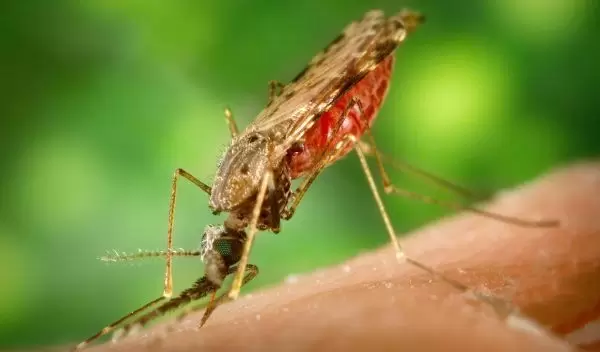
Malaria Researchers’ Findings May Have Implications for Preventing Spread of Deadly Disease
NSF-suported researchers and their collaborators are using systems biology approaches to learn how the malaria parasite can transfer to humans via the bite of an infected mosquito. The information they have uncovered may help identify new ways to prevent people from contracting the deadly disease.
Malaria is caused by Plasmodium parasites that are transmitted to humans through the bite of infected mosquitoes. Once inside the human host, the parasites invade the liver, multiply, and emerge to infect the blood, at which point they cause the clinical symptoms of malaria.
Mosquitoes that feed on infected blood are themselves infected and can spread the disease to others. In 2017, there were an estimated 219 million cases of malaria that resulted in 435,000 deaths, according to the WHO World Malaria Report. More than 60 percent of these deaths were children under five years of age.
The research, by a team at Penn State, the Institute for Systems Biology in Seattle, Johns Hopkins, and the University of Washington, appears in the journal Nature Communications.
The malaria parasite -- which according to the World Health Organization's World Malaria Report affects 200 million people annually, resulting in 400,000 deaths -- enters a mosquito when it takes a blood meal from an infected mammal.
"The regulation of gene expression in the parasite that causes malaria, and the detection of the changes in small amounts of proteins in the parasite during the course of its life cycle, could have significant implications in exploiting new strategies in combating this disease," says Robert Fleischmann, a program director in NSF's Division of Biological Infrastructure. "NSF's Major Research Instrumentation award to team member Robert Moritz to develop new mass spectrometry instrumentation provided the means to identify the proteins," says Fleischmann. "This study demonstrates the foundation's commitment to providing our nation’s scientists with the resources to develop advanced instrumentation."


